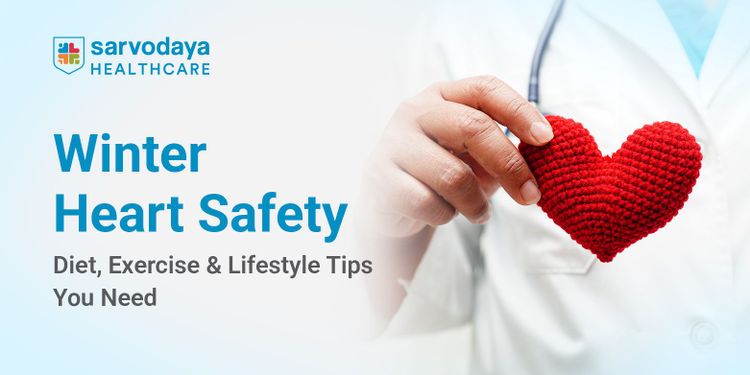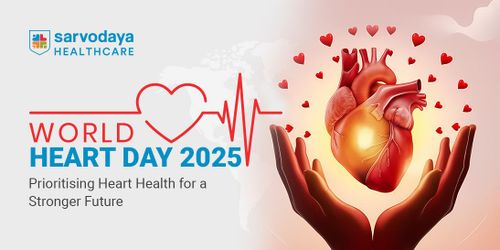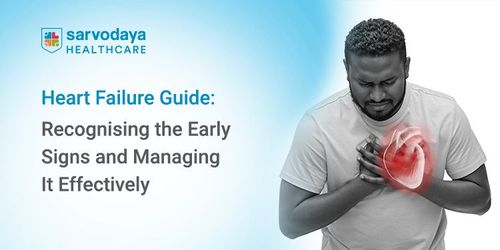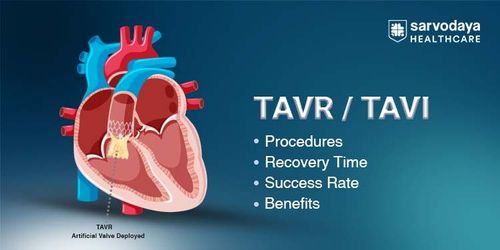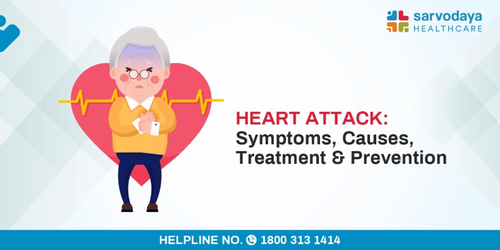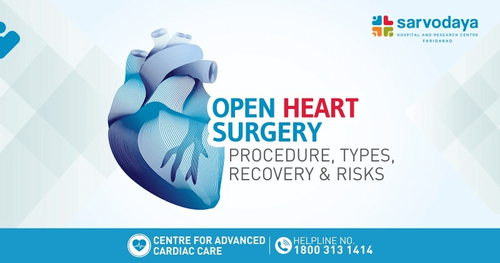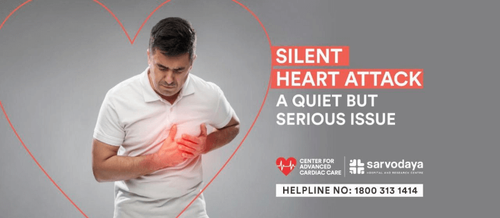As temperatures drop, the human body undergoes several physiological changes. Blood vessels tighten to conserve warmth, blood pressure rises, and the heart works harder to circulate blood. For heart patients in winter, these changes can become challenging, leading to discomfort, increased fatigue, and, in severe cases, a higher risk of cardiac events.
This blog explores how to protect your heart during colder months through simple yet effective diet, exercise, and lifestyle strategies.
Reasons Why Winter Can Be Risky for Heart Patients
Winter might seem calm and pleasant, but it puts extra strain on the heart. The body naturally narrows blood vessels to conserve heat when the temperature drops. This narrowing, or vasoconstriction, increases blood pressure and forces the heart to pump harder. Over time, this can trigger symptoms such as chest pain in winter, shortness of breath, or fatigue, especially in individuals with pre-existing cardiac concerns.
Here are some of the main reasons heart patients in winter face higher health risks:
- Reduced Blood Circulation: Cold weather restricts blood flow, making it harder for the heart to deliver oxygen efficiently.
- Increased Blood Pressure: Vasoconstriction leads to elevated blood pressure, straining heart muscles.
- Sedentary Lifestyle: Many people exercise less indoors, which can worsen cardiovascular health.
- Delayed Response to Symptoms: Early signs of heart problems are often ignored or mistaken for general winter fatigue.
Research also highlights that heart attacks in winter rise due to sudden exertion, such as shovelling snow or heavy physical activity in cold air. It’s essential to recognise these risks early and take preventive measures.
Heart-Friendly Diet Tips for the Cold Season
Diet is vital in keeping your heart healthy, especially when cold weather tempts you towards heavy, fried, or sugary foods. A heart-supportive diet helps maintain circulation, reduces inflammation, and controls cholesterol levels.
Below are some essential diet tips to follow during the colder months:
- Include Heart-Protective Foods: Incorporate foods rich in omega-3 fatty acids, such as flaxseeds, walnuts, and salmon. These help reduce inflammation and improve heart rhythm.
- Focus on Seasonal Produce: Fresh winter vegetables like carrots, spinach, and beetroot provide vital antioxidants and fibre.
- Stay Hydrated: In cold weather, dehydration can thicken blood and increase heart strain. Sip on warm water, green tea, or herbal infusions regularly.
- Limit Salt and Processed Food: High sodium intake raises blood pressure. Replace processed snacks with roasted nuts or fruit.
- Choose Healthy Fats: To maintain a good cholesterol balance, opt for olive oil, mustard oil, or ghee in moderation to maintain good cholesterol balance.
Read More- Rising Heart Disease Risk in Young Adults: Causes, Early Signs and Preventive Strategies
Safe Exercise Tips for Heart Patients in Winter
For heart patients in winter, maintaining a routine of light physical activity is vital to prevent stiffness, improve circulation, and regulate weight. However, it is important to adapt your exercise plan to suit the season.
Here are some safe and effective exercise tips to follow during winter:
- Warm Up Before Exercising: Always begin with gentle stretches or a short walk indoors to prepare your heart and muscles.
- Exercise Indoors When Possible: Activities such as yoga, stretching, or stationary cycling improve cardiovascular endurance without exposure to extreme cold.
- Avoid Early Morning Workouts: Cold temperatures are often lowest in the early morning; opt for mid-morning or afternoon sessions when the weather is milder.
- Dress Appropriately: Wear layered, breathable clothing that keeps your body warm but prevents overheating.
- Monitor Your Heart Rate: Use a smartwatch or heart rate monitor to avoid overexertion and maintain a safe activity level.
Consulting a cardiologist Faridabad can help tailor your activity plan based on your health condition and stamina.
Essential Lifestyle Habits for Winter Heart Safety
In winter, many people stay indoors, sleep irregularly, and indulge in unhealthy food or habits. These small changes, when combined, can negatively impact cardiovascular well-being.
Here are some key lifestyle habits to adopt for better heart health in winter safety:
- Get Enough Rest: Quality sleep helps regulate blood pressure and stress hormones. Aim for 7–8 hours of uninterrupted sleep.
- Manage Stress Effectively: Engage in calming activities like meditation, reading, or listening to music. Stress is a leading trigger for heart complications.
- Avoid Smoking and Excessive Alcohol: Both can constrict blood vessels and increase heart strain, especially in cold weather.
- Monitor Blood Pressure and Sugar Levels: Regular tracking helps detect fluctuations early and ensures timely medical attention.
- Stay Socially Connected: Emotional well-being and social interaction reduce stress, indirectly benefiting heart health.
Recognising Warning Signs and When to Seek Help
Cold temperatures trigger chest discomfort or breathing issues that people often dismiss as minor. However, ignoring these signals can delay crucial medical intervention.
Be alert to the following symptoms and take them seriously:
- Persistent or sudden chest pain in winter that worsens with activity or cold exposure.
- Shortness of breath, light-headedness, or unusual fatigue.
- Pain radiating to the neck, shoulders, or arm.
- Irregular heartbeat or sudden palpitations.
Timely consultation with an expert cardiologist in Delhi NCR ensures you receive the proper diagnosis, medication, and lifestyle guidance suited to your individual condition.
Conclusion
Winter brings health challenges, particularly for those already managing heart conditions. Simple adjustments such as staying hydrated, limiting unhealthy food, and keeping stress under control can ensure a strong and healthy heart.
At Sarvodaya Hospital, Faridabad, patients receive comprehensive cardiac care under the guidance of top specialists and advanced medical facilities. From preventive consultations to emergency heart attack treatment, the hospital is equipped to provide complete support for every stage of cardiac care. A preventive consultation can help you detect risk factors early and receive personalised guidance from an experienced cardiologist, ensuring you enjoy winter with confidence and peace of mind.
If you’ve been experiencing discomfort or want to take preventive steps for your heart health, don’t wait – book an appointment now with a skilled cardiologist in Delhi NCR. Taking proactive action today can help you live a healthier and more active life tomorrow.


